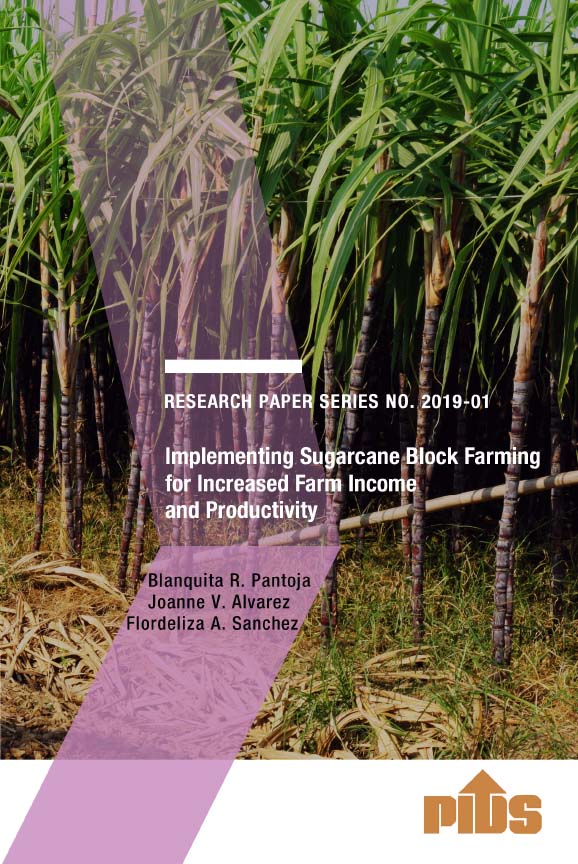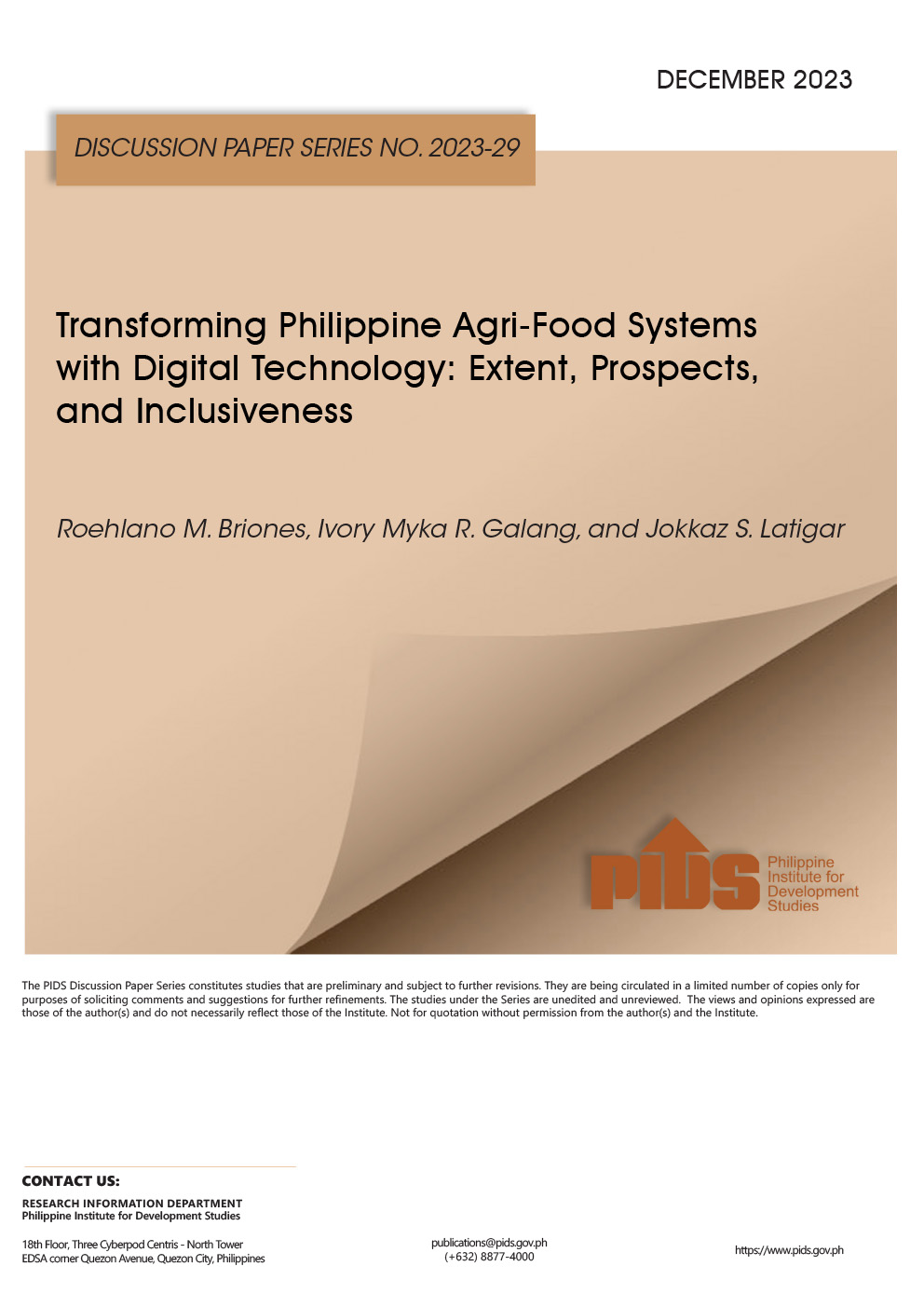This study assesses the performance of the sugarcane block farming (SBF) as a land consolidation model for increasing farm productivity and income of the sugarcane farmers’ sector. As such, a framework identifying factors needed for a successful SBF implementation was formulated considering the supply chain, the policy environment, and the global market. Using a case study approach, block farms, both cooperative managed and individually managed, were examined. The study notes several issues on production, marketing, and pricing that affect the implementation of SBF. It recommends that SBF arrangements should be encouraged but the government has to provide a policy environment for Philippine export crops to be competitive. Agrarian reform beneficiaries and their associations should also be supported through capacity-building activities.













